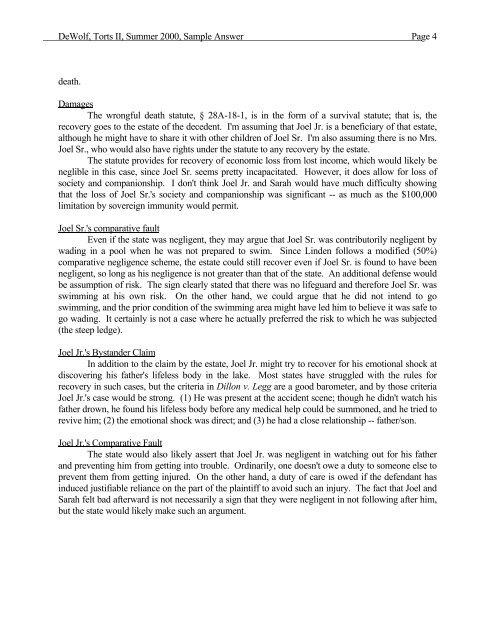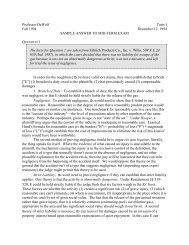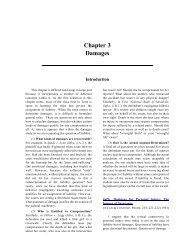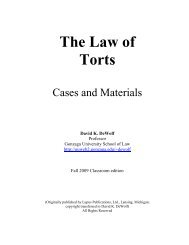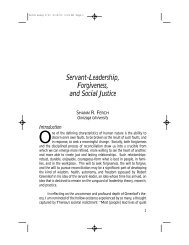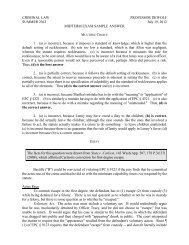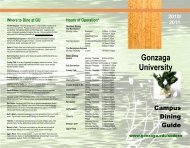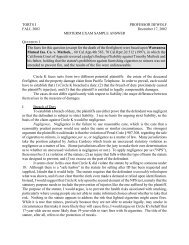sample answer
sample answer
sample answer
You also want an ePaper? Increase the reach of your titles
YUMPU automatically turns print PDFs into web optimized ePapers that Google loves.
DeWolf, Torts II, Summer 2000, Sample Answer Page 4<br />
death.<br />
Damages<br />
The wrongful death statute, § 28A-18-1, is in the form of a survival statute; that is, the<br />
recovery goes to the estate of the decedent. I'm assuming that Joel Jr. is a beneficiary of that estate,<br />
although he might have to share it with other children of Joel Sr. I'm also assuming there is no Mrs.<br />
Joel Sr., who would also have rights under the statute to any recovery by the estate.<br />
The statute provides for recovery of economic loss from lost income, which would likely be<br />
neglible in this case, since Joel Sr. seems pretty incapacitated. However, it does allow for loss of<br />
society and companionship. I don't think Joel Jr. and Sarah would have much difficulty showing<br />
that the loss of Joel Sr.'s society and companionship was significant -- as much as the $100,000<br />
limitation by sovereign immunity would permit.<br />
Joel Sr.'s comparative fault<br />
Even if the state was negligent, they may argue that Joel Sr. was contributorily negligent by<br />
wading in a pool when he was not prepared to swim. Since Linden follows a modified (50%)<br />
comparative negligence scheme, the estate could still recover even if Joel Sr. is found to have been<br />
negligent, so long as his negligence is not greater than that of the state. An additional defense would<br />
be assumption of risk. The sign clearly stated that there was no lifeguard and therefore Joel Sr. was<br />
swimming at his own risk. On the other hand, we could argue that he did not intend to go<br />
swimming, and the prior condition of the swimming area might have led him to believe it was safe to<br />
go wading. It certainly is not a case where he actually preferred the risk to which he was subjected<br />
(the steep ledge).<br />
Joel Jr.'s Bystander Claim<br />
In addition to the claim by the estate, Joel Jr. might try to recover for his emotional shock at<br />
discovering his father's lifeless body in the lake. Most states have struggled with the rules for<br />
recovery in such cases, but the criteria in Dillon v. Legg are a good barometer, and by those criteria<br />
Joel Jr.'s case would be strong. (1) He was present at the accident scene; though he didn't watch his<br />
father drown, he found his lifeless body before any medical help could be summoned, and he tried to<br />
revive him; (2) the emotional shock was direct; and (3) he had a close relationship -- father/son.<br />
Joel Jr.'s Comparative Fault<br />
The state would also likely assert that Joel Jr. was negligent in watching out for his father<br />
and preventing him from getting into trouble. Ordinarily, one doesn't owe a duty to someone else to<br />
prevent them from getting injured. On the other hand, a duty of care is owed if the defendant has<br />
induced justifiable reliance on the part of the plaintiff to avoid such an injury. The fact that Joel and<br />
Sarah felt bad afterward is not necessarily a sign that they were negligent in not following after him,<br />
but the state would likely make such an argument.


